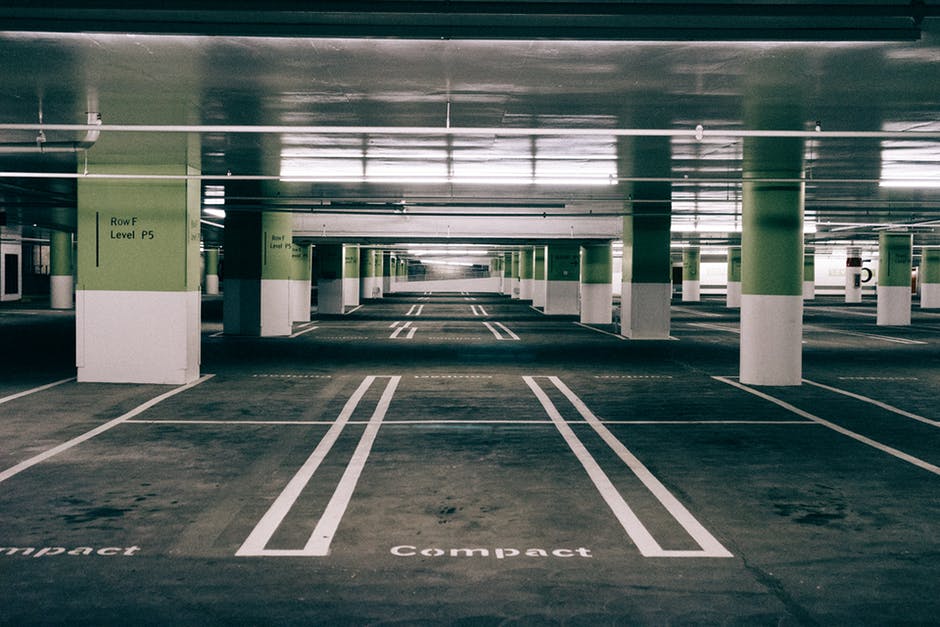In most California cities, whenever developers construct a new building, local governments force them to provide a certain amount of parking as well. These rules - minimum parking requirements - are bad for the state, and they get in the way of meeting housing, transportation, and climate goals by making it harder and more expensive to build housing. They also increase driving, air pollution, and carbon emissions.
A number of progressive cities - including San Francisco, Berkeley, San Diego, and Sacramento - have already abolished parking minimums, and California now has an opportunity to follow their lead statewide. A.B. 2097, a bill that would ban parking mandates in areas near public transit, is currently in the Senate.
California should make it law.
At first blush, parking requirements can seem sensible. Most people drive, and driving is hard without parking. But that logic quickly breaks down. Driving is also hard without gas, and without automobiles. But if cities started requiring developers to include gas pumps on every parcel, or to provide cars with every new building, most people would consider that insane.
Parking requirements aren’t much different. Forcing new buildings to have parking doesn’t just accommodate our driving culture; it reinforces and reproduces it. Buildings surrounded by parking are easier to drive to, and also harder to access by other means. Required parking thus soon becomes required driving.
It also means less housing. California has some of the most valuable land on earth, but parking requirements force us, despite a dire housing shortage, to squander that land on the low-value use of storing empty cars. Developers can conserve some land by putting parking underground, but underground parking often costs over $50,000 per space. The result is still less housing.
Crucially, banning parking requirements is not the same as banning parking. Without parking requirements, developers can still provide as much parking as they want. Remember that California doesn’t have gas pump requirements, but there are still gas stations.
Ending parking requirements just means the government can’t dictate parking’s quantity and location. So long as people want parking, developers will have an incentive to provide it. But without strict requirements to build it, they would also have the freedom to experiment with different ways of providing parking - by building a shared garage a block away, for example, or leasing underused spaces nearby. Some might build housing without parking, aimed at people who can’t or don’t want to drive. Parking requirements make it essentially illegal to build housing explicitly for non-drivers.
Abolishing parking requirements will also let developers bring back beloved types of housing—town homes, row houses, cottages, and garden apartments—that have largely vanished because they lose both aesthetic appeal and financial viability when they include parking onsite.
Some people worry that without parking requirements, developers will build too little parking, and curb spaces will get congested. But an absence of off-street parking isn’t why curb spaces get congested. The curb gets congested because it’s valuable, and because cities give it away for free. If cities gave gas away free, they’d run out of that too, no matter how many private gas stations were nearby. Cities worried about curb congestion should directly manage their curbs, with permits or meters. They can do that. Cities own their curbs. Managing public street parking by mandating private off-street parking, in contrast, is roundabout, ineffective, and inefficient.
Another worry is that repealing parking requirements would be a giveaway to developers. It’s true that parking requirements burden developers - but that’s hardly a reason to keep them. Suppose we had laws requiring gas pumps everywhere. Those laws would also burden developers. Would ending them be a “developer giveaway” or a small step toward sanity?
California has bold plans to build housing and reduce carbon emissions, but these goals are being quietly foiled by local zoning. Parking requirements get us less housing, and the housing we get is, by law, oriented around cars. A good first step in our battle against climate change and housing insecurity is to stop shooting ourselves in the foot.
It’s time to end parking requirements statewide.
Michael Manville is an Associate Professor of Urban Planning at the UCLA Luskin School of Public Affairs.






